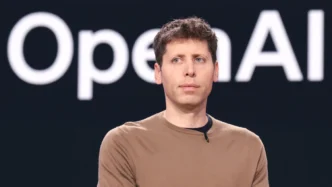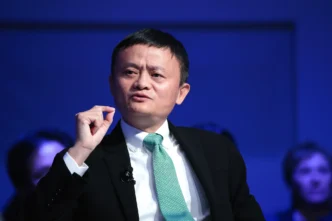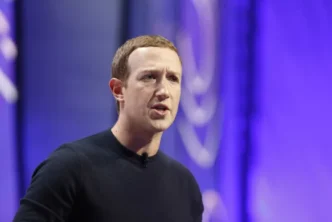Mark Zuckerberg has made it clear he wants Meta to dominate the artificial intelligence (AI) market. But now, investors are asking: how will President Donald Trump’s new tariffs affect that plan?
Meta’s ambitious goal to spend up to $65 billion this year on AI infrastructure is under the spotlight. This week, attention will focus on two key events: Meta’s first LlamaCon developer conference on Tuesday and its latest earnings report on Wednesday. Investors are eager for signs that Meta will stick to its massive AI investment plans — and whether those plans might start showing real business returns.
Watching the Tariff Impact on Meta’s AI Ambitions
Other tech giants have already started to brace for the ripple effects of Trump’s tariffs. Last week, Intel’s CFO David Zinsner warned that U.S. trade policies could raise the odds of an economic slowdown, possibly tipping into a recession. Meanwhile, Google’s CFO Anat Ashkenazi said the company remains committed to its $75 billion capital spending plan this year, though she noted delivery schedules might cause spending shifts from quarter to quarter.
For now, Wall Street expects Meta to hold firm. Analysts predict Meta will keep its 2025 capex guidance between $60 billion and $65 billion, largely to fuel its generative AI infrastructure. In fact, some believe the company could even boost that figure.
Needham analysts wrote in a recent note that Meta views AI as a critical 10-year investment. “We do not expect META to cut its CapX guidance of $60B-$65B in 2025 for its GenAI infrastructure,” they said, although they warned tariffs could push costs even higher.
Beyond spending, investors will also be closely watching Meta’s LlamaCon event at its Menlo Park headquarters. This conference is the first focused exclusively on Meta’s Llama family of AI models, and investors are eager to see whether Meta’s heavy AI bets are already delivering tangible business results.
Youssef Squali, an analyst at Truist Securities, pointed out that while Meta has successfully used AI to boost product performance and speed up revenue growth, it’s still tough to measure the exact return on these AI investments.
Llama 4, AI Agents, and the Push Toward AI Monetization
In April, Meta unveiled new versions of its Llama 4 models. Chief Product Officer Chris Cox said these models can power advanced AI agents — tools that can complete tasks for users directly through web browsers and apps.
Building out Llama is crucial. Ralph Schackart, a research analyst at William Blair, emphasized that Meta has a first-mover advantage at scale in what could become a multi-trillion-dollar AI market. Leveraging billions of users across Facebook, Instagram, and WhatsApp gives Meta an unmatched global platform.
However, some caution is needed. Ken Gawrelski, an equity research managing director at Wells Fargo, said Meta must constantly evaluate whether its Llama models stay competitive with top-tier alternatives. “It’s a very expensive proposition,” Gawrelski explained. Unlike Google, Meta doesn’t yet directly monetize its models in a meaningful way, he added.
Meta AI and the Race for a Billion Users
Another pillar of Zuckerberg’s AI strategy is Meta AI, the company’s digital assistant. Earlier this year, Zuckerberg predicted that 2025 would be the moment when an AI assistant reaches over a billion people — and he expects Meta AI to be the market leader.
In February, reports surfaced that Meta plans to launch a standalone Meta AI app in the second quarter of 2025. The company also aims to test a paid subscription model, giving users the option to pay for more powerful AI tools, much like OpenAI’s approach with ChatGPT Plus.
Despite its huge audience, Meta may face challenges convincing users to engage deeply with its AI assistant. Deepak Mathivanan, an analyst at Cantor Fitzgerald, noted that while Meta’s apps have massive reach, users may not naturally interact with Meta AI while passively scrolling through short-form videos.
That’s why a separate app could be a smart move. Wells Fargo’s Gawrelski said a standalone Meta AI app would let the company more clearly highlight the assistant’s value and unique use cases. Debra Aho Williamson, founder of Sonata Insights, agreed. She warned that ChatGPT’s brand awareness is becoming a “moat” that competitors will find increasingly difficult to cross.
For Meta, staying ahead in AI won’t just be about infrastructure spending. It’s about getting real, measurable traction — and soon.













